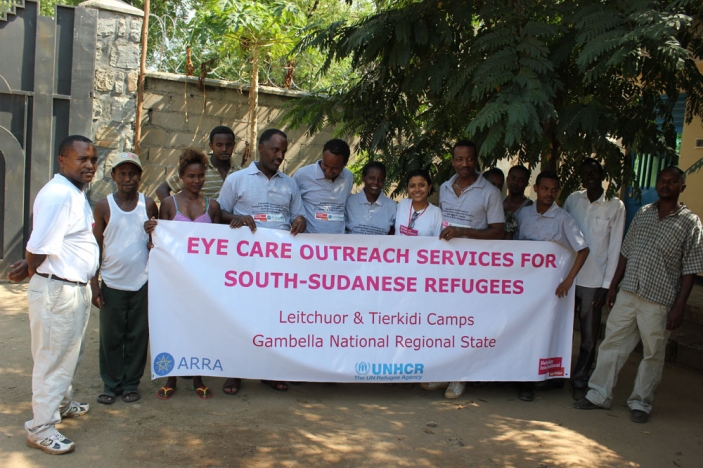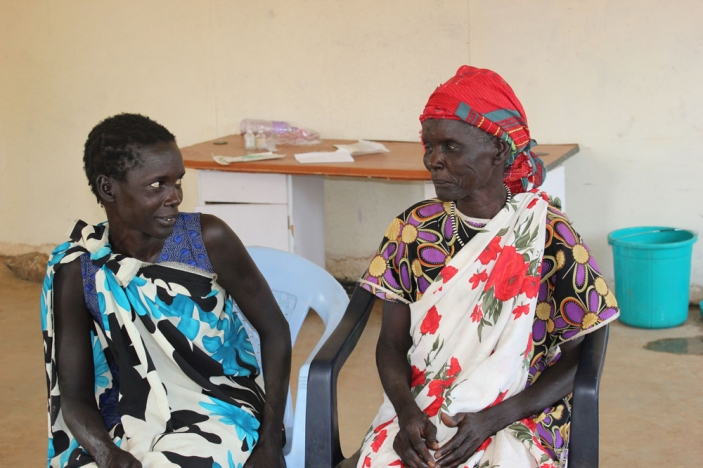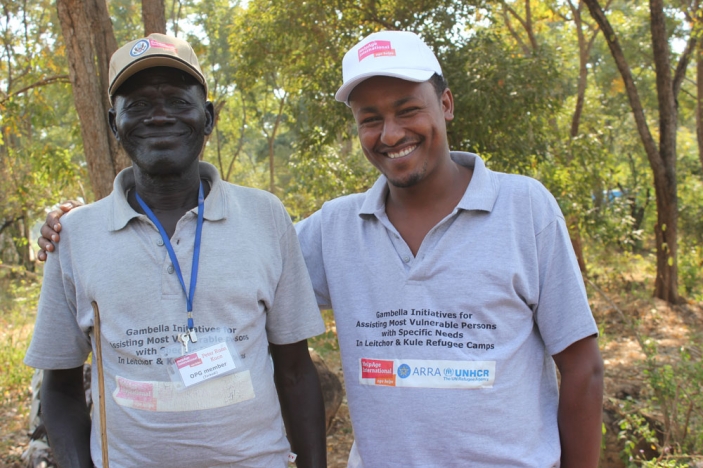I recently flew to Gambella, which I had heard is a very intimidating environment, as the dire situation of the refugees, coupled with harsh conditions of weather and lack of amenities, could make my field visit very difficult.
Well, it wasn’t at all like I expected. It was an unbelievable experience which made me proud of being part of HelpAge.

The purpose of my trip was to document our emergency response. I knew I would be visiting HelpAge eye care and food distribution projects in the Terkiedi and Leitchuor refugee camps, funded by UNHCR.
The programme supported over 3,000 older and other vulnerable refugees. The refugees were forced to flee South Sudan over a year ago and leave everything behind due to a civil war.
I documented the eye care work and the food distribution to older refugees and those living with disabilities in the Terkiedi camp.
Eye care
Over their two week stay in the Terkedi camp, the HelpAge eye care team treated over 590 people. From these, 237 refugees successfully received surgeries for cataracts or trichiasis.
One of the patients I visited was Mrs Nyabel Kuon, a 60-year-old South Sudanese refugee being supported by her daughter, Goanet. They live in the Terkiedi refugee camp. I was lucky enough to share with Nyabel her experience of being able see again after many, many years.
She told me,
“I heard HelpAge was bringing an eye care team to help us from the older people’s groups and the home-based carer. They came to our shelter to inform us. At last, there was hope! Yesterday my daughter brought me to the health facility and I got a registration card. Then, the doctors gave me an operation.
“I can see you. I can see daylight. I never thought this dream would come true. I am very happy. I thank HelpAge, the donors and the doctors, who travelled many miles, to make an older woman’s life easier.”
Goanet said,
“My mother can now be active again. She will no longer suffer and be in pain all the time. She can now see her grandchildren and also help me care for them. You have changed her life.”

Food distribution
The following day, I accompanied our team to the HelpAge food distribution site. There were four groups of 300 older people and their family members sitting and singing. As a truck with a load of maize arrived, the people started chanting, “HelpAge! HelpAge! HelpAge!” It was really touching to see people so ecstatic to see the arrival of their staple food.

Meeting older people
I also interviewed a couple of the refugees. One of them was Mrs Nyaniel Choul, a 60-year-old woman, from Mathiang County in South Sudan.
As I asked about what happened in December 2013, she told me with a deep sadness on her face,
“When war started in my country, my family and I fled together. It was unsafe; we needed security and started our four-day journey on foot to the border with Ethiopia. From there, we travelled by bus to Gambella.
“It was very hard on us. There was no food and no water. I remember nothing but dirt, dust and cold weather at night. We had nothing except the clothes on our back. There was no time to collect any of our belongings; we lost everything. Getting away was all that mattered.
“HelpAge has given me a mattress, bed sheets and 15kg of maize for a month. I am actually here today to collect two months’ worth. Life in the camp is challenging at times. I have food but I don’t have oil, salt and pots to cook with. Maize is good, but if I don’t cook it to make stew, I find it difficult to eat and digest.
“There are many older people here who arrived after me who don’t have the same benefits. The most affected are those with no children or those whose children are married. They struggle from lack of food because they don’t have ration cards. I feel lucky to get the food support, because I can request food at any time.
“My home-based carer tells me when the food rations will be distributed. His name is Rock. I feel very lucky. If it wasn’t for HelpAge, I don’t think I, as an older woman, would have been able to live the life I am living now.”
It was truly an honour to have met these survivors and it made me very proud to be part of an organisation that strives to meet the needs of the often overlooked older generation.
